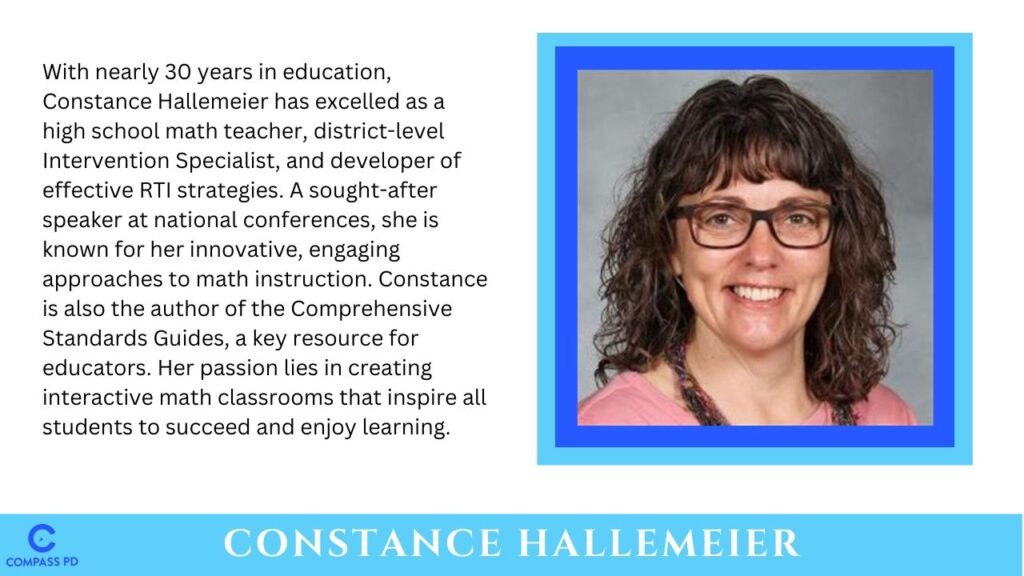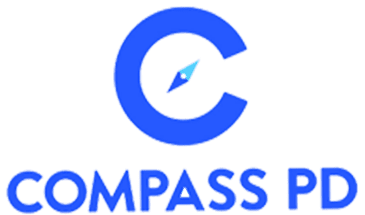Don’t Let Math Slip Away: Sliding Into Fall with Skills Intact
By Constance Hallemeier
The school year is winding down. The days are getting longer, the air warmer, and the desire for summer vacation is growing stronger. Images of kids sleeping in, playing with friends, and doing math… what? Wait, doing math, really? While the excitement of a break from routine is intense, there’s often a worry from parents and educators alike: the dreaded “summer slide.”
This loss of math skills can feel like taking two steps back after a year of hard work. But what if sliding into summer didn’t have to mean sliding out of math? What if we could seamlessly integrate mathematical thinking into our summer fun, ensuring our elementary, middle, and high school students return to the classroom refreshed and having practiced with their existing knowledge? MATH IN THE SUMMER – every student’s dream.

The key to preventing students from losing their math skills lies in shifting our perception of math from a purely academic subject only done in school to a practical, engaging tool used in our everyday lives. Summer offers a unique opportunity to explore math in real-world contexts, making it relatable and enjoyable.
Ideas for elementary students
Teachers can create take-home math activities like bingo cards or checklists for students to do over the summer. These activities will be fun and engaging for students and will help them build foundational math skills through play and exploration. Teachers can also recommend summer activities to families to keep students engaged and learning throughout the summer months.
Summer Bingo Card
- Create a bingo game for students to play over the summer with their families or at summer camp, and bring it back to school in the fall.
- Add grade-appropriate topics to the bingo cards, such as counting objects or money, measuring items with a ruler or hand, measuring food with a measuring cup, finding shapes in the kitchen, and estimating how long a trip will take..

Summer Math Checklist for Elementary Students
- Inside Day Activities:
- Build a fort with siblings to work on spatial reasoning.
- Build towers out of cardboard boxes to identify shapes.
- Plan a timeline for activities to practice estimating and telling time.
- Play board games to practice counting.
- Play dice games to practice subitizing and adding.
- Play card games to practice matching and identifying patterns.
- Outside Day Activities:
- Count fireflies, sticks, or flowers to practice counting in different ways.
- Play with containers in water to investigate volume and patterns.
- Go for a hike and count animals, steps, or time to reach a destination.
- Work at Home Day Activities:
- Create a menu and budget for a family meal (older students)
- Follow a recipe and measure ingredients (older students)
- Create a daily schedule with estimated times.
- Identify math games online or with apps.
- Practice counting money with coins or bills.
Ideas for secondary school students
As students transition to more complex mathematical concepts, summer can provide engaging ways to reinforce and apply these skills. Before summer break, teachers can share a variety of activities with families to encourage summer learning. Students can complete these activities and share their accomplishments when they return to school in the fall.
- Scavenger Hunt
- Secondary teachers can create scavenger hunts for their students to engage with throughout the summer by having students brainstorm a list of items they may encounter that will remind them of math.
- Topics can include images of the students with various 2-dimensional and 3-dimensional geometric shapes, examples of various types of graphs, or lines with various slopes, examples of ratios and statistics they encounter.
- Provide an incentive for students to return their scavenger hunt board completed in the fall.
- Social Media #SummerMathChallengeAccepted
- Create a social media account for students to follow and post math topics throughout the summer.
- Encourage students to post pictures or videos of themselves “doing math” in everyday activities like cooking, baking, bike riding, getting a driver’s license, building a deck, or making music using a designated hashtag.
- Make a slide deck of the student posts using the hashtag to show at school in the fall.
- Other secondary summer math ideas
- Inventing things like a roller coaster out of leftover supplies around the house to bring back to school and demonstrate in the fall. Or, a new board game or card game that involves probability and statistics to play when they return to school in the fall.
- Students could be encouraged to start a business like lawn mowing or selling baked goods or crafts to do math over the summer. They can share their success stories with classmates in the fall.
- Encourage families to let their students help plan the family vacation, including calculating distances, fuel costs, and travel times using maps and staying within a budget.
Make Math Fun and Engaging:
The key to preventing the summer slide isn’t about replicating the school year at home with worksheets and examples. It’s about finding creative and enjoyable ways to weave mathematical thinking into everyday summer activities.
- Embrace play: Board games, card games, and even building a fort can provide a fun and interactive way to practice skills.
- Get Outdoors: Nature offers many mathematical opportunities, from counting patterns in leaves to estimating distances to watching a sporting event.
- Involve Them in Real-World Tasks: From grocery shopping to planning a family event to baking, involve them in tasks that require mathematical thinking.
- Encourage Curiosity and Questions: Foster a mindset of inquiry. When a mathematical situation arises, encourage your child to ask “why?” and “how?” And, if they don’t ask “why?” you ask it. Sometimes it’s interesting to hear their answers.
Summer is a time for relaxation and fun, but it doesn’t have to be a mathematical wasteland. By consciously seeking out opportunities to engage with math in meaningful and enjoyable ways, we can ensure our students slide into fall with their skills intact, ready to tackle the challenges of the next academic year with confidence and enthusiasm. Let’s make this a summer of both adventure and mathematical discovery!

